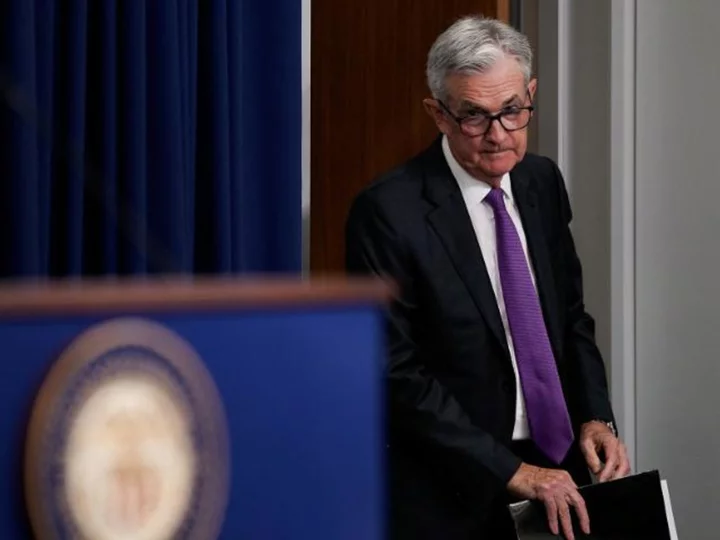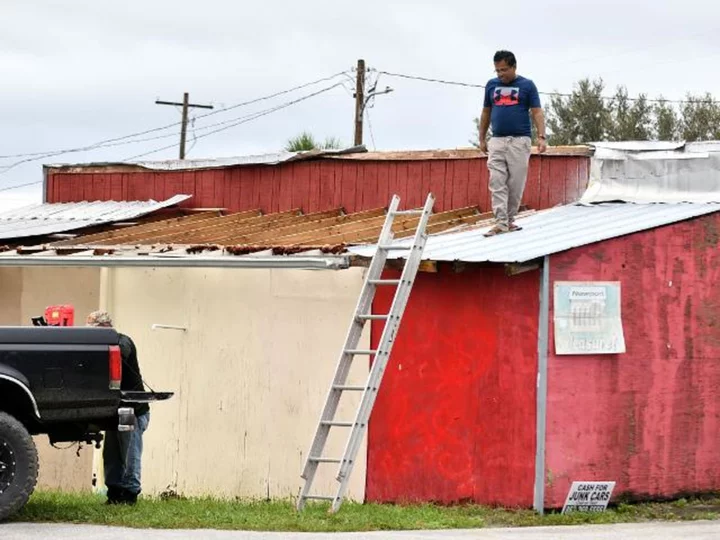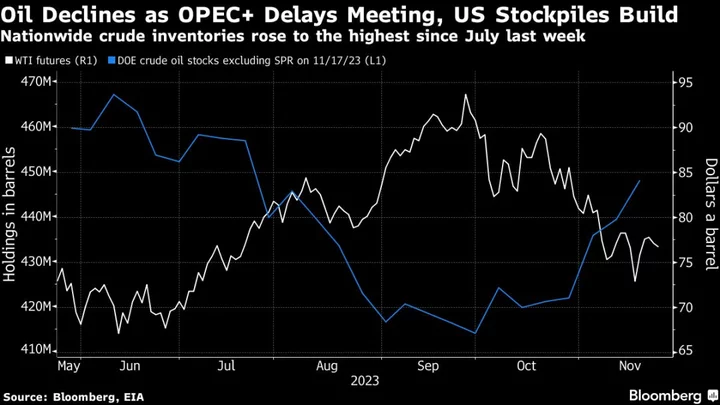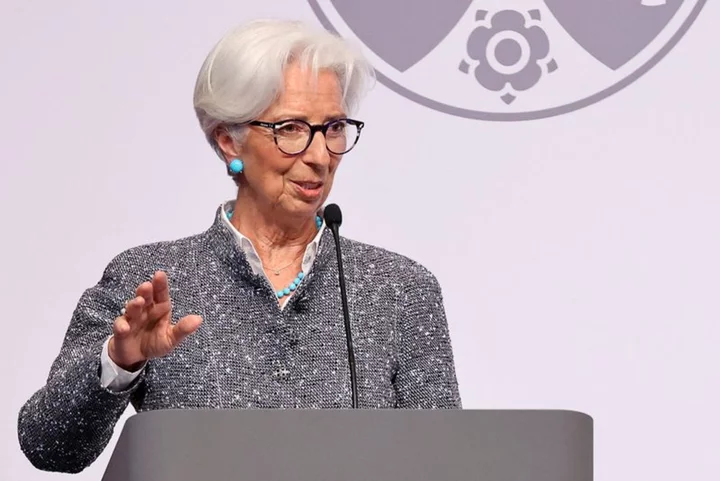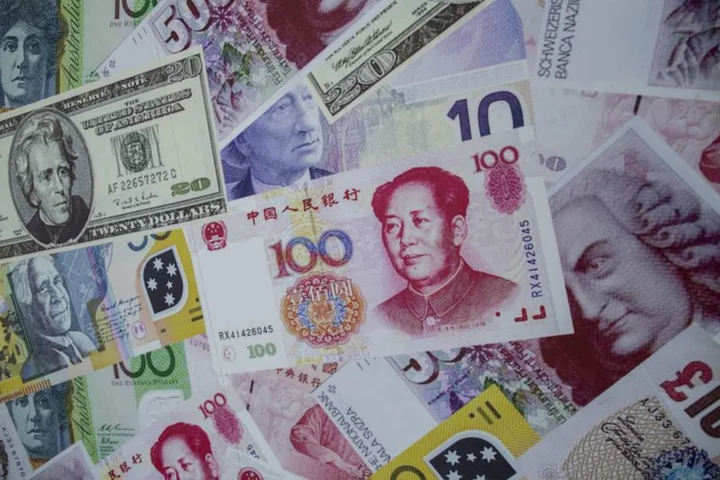The Federal Reserve has raised interest rates to their highest level in 22 years in an aggressive bid to curb inflation, and there's a chance that more rate increases may still be on tap if the economy's strength causes inflation to rebound.
Investors looking ahead to the next phase of the Fed's strategy are now asking themselves how much longer will rates stay this high? But inflation's uncertain path makes that a tough question.
"Rather than arguing about the peak rate, of how many more rate increases do there need to be, what we should probably start thinking about is how long does this last, that you're going to be at these elevated rates," Federal Reserve Bank of Chicago President Austan Goolsbee said earlier this month.
Some investors are betting on rate cuts as soon as early next year, perhaps on expectations that the economy might soon deteriorate. If unemployment spikes because of higher interest rates, for example, the Fed would likely cut rates to stem job losses under its mandate of maximum employment.
However, the Fed hasn't given any hint of rate cuts just yet. In fact, according to minutes from its last meeting in July, quite the opposite seems likely: more rate hikes this year.
The Fed's tough talk has rattled the bond market, helping push up long-dated yields. The yield on the 10-year US Treasury note hit 4.3% on Thursday, its highest level in over a decade.
"The expectations of the (bond) market versus the Fed's guidance suggests that the bond market is pessimistic (about the economy) because it's betting we have four rate cuts, while the stock market is not," Mike Hackett, chief of investment research at Nationwide, told CNN.
Rate cuts would mean the Fed is looking to boost an economy that's not doing well enough to promote full employment. In contrast, the Fed's suggestion of rate hikes implies they see the US economy is still running too hot and might not be consistent with 2% inflation.
"You're smart to pay attention to bond investors because historically, they've always been the adult in the room, but over the last 24 months or so, bond markets have been wildly pessimistic," he said.
In addition to the possibility of cutting rates because of an economic downturn, the Fed could also cut rates if inflation slows too much.
"If the Fed sees that inflation goes below the 2% target, they could start decreasing interest rates, but I don't think they are going to start decreasing interest rates until that happens," said Eugenio Alemán, chief economist at Raymond James.
And even if-and-when the cuts do begin, it's unlikely that the Fed would return to ultralow interest rates, like in the years before the Covid-19 pandemic, economists say.
The US economy's remarkable strength this summer has kept some Fed officials on edge about getting inflation to fall to 2%.
The Consumer Price Index rose 3.2% in July from a year earlier, a faster pace than June's 3% annual rise. That was the first time overall inflation picked up in more than a year, though underlying price increases continued to slow last month.
Both investors and the Fed are closely watching consumer spending, which could signal either more rate hikes if spending heats up too much, or a recession and the increased likelihood of rate cuts if it cools too quickly. US retail sales rose 0.7% in July from the prior month, a much faster pace than June's 0.3% gain.
"If consumers are still spending, that is good for the economy, but it does suggest that the Fed will continue on its tightening course, which ultimately may not be good for equity markets," said Melissa Brown, global head of applied research at Qontigo. "On the other hand, if the consumer isn't spending enough in the view of the market, that could also be a signal that this recession that the yield curve has been forecasting for a year now may be closer than we think."
China's 'Lehman moment?'
A major Chinese investment trust has missed payments to corporate investors, sparking a rare protest and adding to concerns that a slump in China's property market could trigger a wider financial crisis, my colleagues Laura He and Mengchen Zhang report.
At least three Chinese companies — Nacity Property Service, KBC Corporation and Xianheng International Science and Technology — said in separate stock exchange filings in recent weeks that Zhongrong Trust had failed to pay the interest and principal on several investment products. The scale of payments missed exceeded 110 million yuan ($15 million), according to their statements.
Zhongrong Trust, which managed $87 billion worth of funds for corporate clients and wealthy individuals as of the end of 2022, is one of thousands of wealth management firms in China that offer relatively high levels of return to investors.
They are considered part of the "shadow banking" industry, a sector that forms an important source of finance in China. The term usually refers to financing activity that takes place outside the formal banking system, either by banks through off-balance-sheet activities, or by non-bank financial institutions, such as trust firms.
Read more here.
Up Next
Tuesday: Earnings from Lowe's, Macy's and BJ's. Fed officials Thomas Barkin, Michelle Bowman and Austan Goolsbee give remarks. The National Association of Realtors releases July figures on existing home sales.
Wednesday: Earnings from Abercrombie, Bath & Body Works, Kohl's, Peloton and Nvidia. The Kansas City Fed's Jackson Hole Economic Policy Symposium starts. S&P Global releases August surveys gauging business activity in the US. The US Commerce Department reports July sales of new single-family homes.
Thursday: Earnings from Gap, Ulta Beauty and Dollar Tree. The US Commerce Department releases July figures on durable goods orders. The Labor Department reports the number of worker filings for jobless benefits in the week ended Aug. 19.
Friday: Fed Chair Jerome Powell delivers remarks at the Kansas City Fed's Jackson Hole symposium. European Central Bank President Christine Lagarde also gives a speech at the event.

